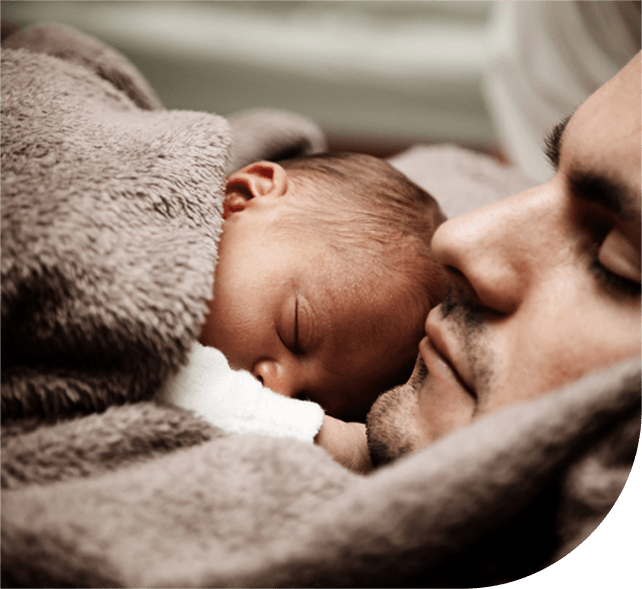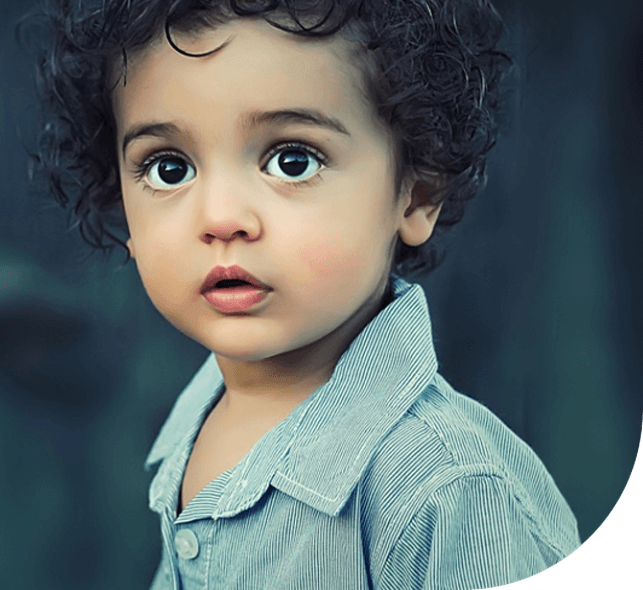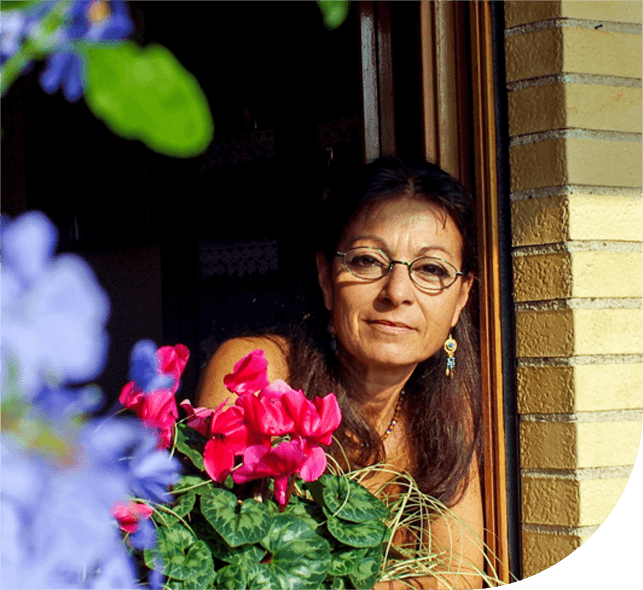Vision and Age
Just like your body, your eyes and vision change overtime. Learn more about your visual milestones here.

Baby Eyes
In his or her first year, your baby’s brain and eyes will begin to co-ordinate and remember what they’ve seen.
Eye Development
As a parent, you can encourage your newborn’s healthy eye development as part of your normal routine.
Eye Exams
The best way to protect your baby’s eyes is through professional examinations.
Eye Concerns
The sooner problems are addressed, the better it will be for your baby’s eyes now and in the future.
Eye Safety
Babies are naturally curious – it’s their job to learn all about the world around them.

Children Eyes
While the eye’s greatest physical development occurs during the first year of life, your child’s eye development continues throughout childhood.
Eye Development
You can help your child to develop strong connections between their eyesight and their interaction with the world in a variety of ways.
Eye Exams
Your child may not complain of any problems with their eyes, but if you notice anything that seems unusual, trust your instincts and have it checked out.
Eye Concerns
Parents are usually the first to notice that their children may have special vision needs so don’t hesitate to see your GP if you are concerned.
Eye Safety
If your child suffers an eye injury, it’s important that you seek medical help as soon as possible.


Teen Eyes
Your vision may change frequently during the school years. The best way to preserve and protect your vision is through regular professional eye examinations.
Eye Development
Your vision may change frequently during the school years. The most common problems are due to the development and progression of shortsightedness (myopia).
Eye Exams
The best way to preserve and protect your vision is through regular professional eye examinations.
Vision Correction
You may already know if you’re shortsighted, longsighted or if you have astigmatism, the three most common vision issues that come to light when you’re young.
Teens and Sports
It shouldn’t come as a surprise that teens are in the highest risk category for serious eye injuries, especially when playing racket sports like tennis or squash.
Eye Safety
40% of hospital admissions for eye injuries in the US are related to sports.

20s and 30s Eyes
If you’re like most people in their 20s and 30s, you enjoy excellent vision. The single best way to protect your vision is through regular professional eye examinations.
Eye Development
You may be at a higher risk for eye problems, if there is a family history of eye disease, diabetes, high blood pressure or poor vision.
Eye Exams
Each optometrist is different, but most eye exams follow a similar pattern. First, your optometrist will review your personal and family health history – checking for specific risk factors like eye disease, diabetes, high blood pressure or poor vision.
Sports and Vision
To be competitive on the playing field you need peak performance from your entire body – and your eyes are no exception.
Eye Safety
Most people know their eyesight is precious, but at this age they don’t think as much about protecting their eyes as they should.
Maintaining Healthy Eyes
A regular eye exam is the best way to protect your eyesight – and an easy precaution to take.


40s and 50s Eyes
You may also notice that just about everyone in your age group uses some type of vision correction, like spectacles or multifocal contact lenses. Beyond corrective lenses, there are other options to consider.
Eye Development
If you’re short-sighted (myopic), long-sighted (hyperopic) or you have astigmatism and you’d like to reduce your reliance on vision correction, laser surgery and ortho-k are two safe and effective alternatives.
Eye Exams
Regular eye exams become more important as you reach your 40’s and 50’s. Not only do you need to keep pace with the changes in your vision by updating your prescription for glasses or contact lenses, but you also want to be certain there’s no vision problem beginning to develop.
Eye Concerns
Generally, changes in your vision now are just a factor of ageing. If you experience any of the issues below, you may have the early warning signs of a more serious problem.
Vision Correction
Even if you’ve never worn spectacles or corrective lenses, chances are you know about short-sightedness (myopia), long-sightedness (hyperopia), and astigmatism.
Maintaining Healthy Eyes
A regular eye exam is the best way to protect your eyesight – and an easy precaution to take. Many sight-threatening diseases can be cured or slowed if caught early enough.

60+ Eyes
You’ve worked hard; at last there is time to focus on yourself. Time to enjoy friends or grandchildren, read a book or play a round of golf, and enjoy your continued good vision.
It’s a fact of life that your eyesight changes as you get older, sometimes significantly – but this doesn’t have to compromise your lifestyle.
Eye Development
You might not realise that other health issues can affect the strength of your vision as well. In particular, diabetes and high blood pressure can lead to vision problems – especially if these conditions are allowed to continue without treatment.
Eye Exams
As we age, eye exams become even more important. Vision problems may develop with no physical symptoms until they’re quite advanced.
Eye Concerns
Many eye diseases have no early symptoms. They may be painless, and you may see no change in your vision until the disease has become quite advanced.
Vision Correction
Just about everyone over age 60 needs some sort of vision correction. It’s just a normal, natural part of aging. The good news? You have several options to maintain your 20/20 vision for years to come.
Maintaining Healthy Eyes
A regular eye exam is the best way to protect your eyesight – and an easy precaution to take. Another way to safeguard your vision is through proper eye nutrition.


